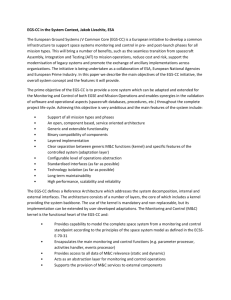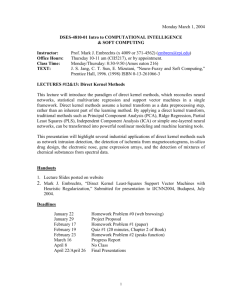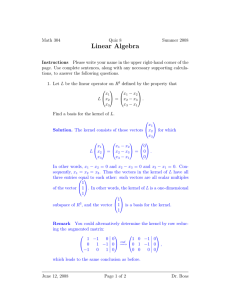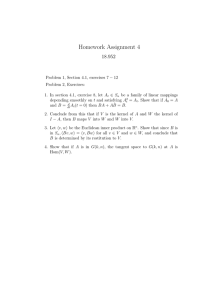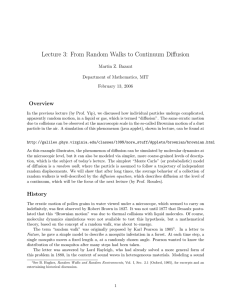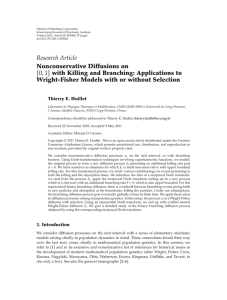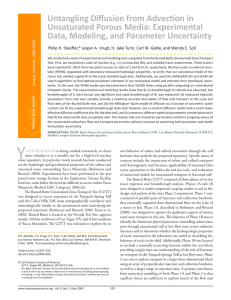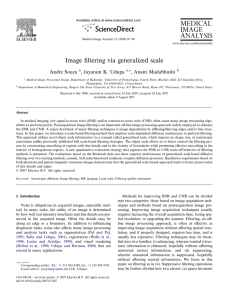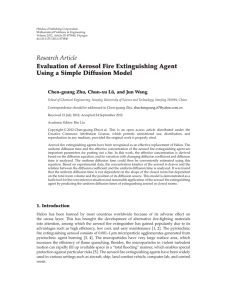ON THE DISTRIBUTIONAL SOLUTION OF THE INVERSE
advertisement
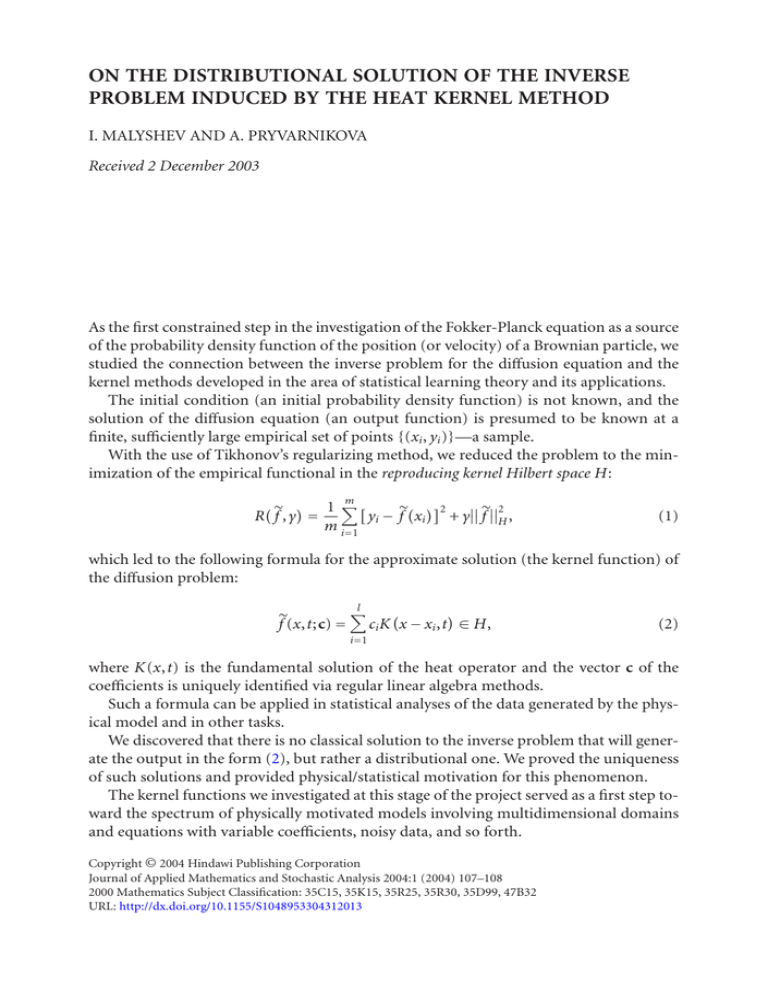
ON THE DISTRIBUTIONAL SOLUTION OF THE INVERSE
PROBLEM INDUCED BY THE HEAT KERNEL METHOD
I. MALYSHEV AND A. PRYVARNIKOVA
Received 2 December 2003
As the first constrained step in the investigation of the Fokker-Planck equation as a source
of the probability density function of the position (or velocity) of a Brownian particle, we
studied the connection between the inverse problem for the diffusion equation and the
kernel methods developed in the area of statistical learning theory and its applications.
The initial condition (an initial probability density function) is not known, and the
solution of the diffusion equation (an output function) is presumed to be known at a
finite, sufficiently large empirical set of points {(xi , yi )}—a sample.
With the use of Tikhonov’s regularizing method, we reduced the problem to the minimization of the empirical functional in the reproducing kernel Hilbert space H:
m
2
2
1 R f,γ =
yi − f xi + γ fH ,
m i=1
(1)
which led to the following formula for the approximate solution (the kernel function) of
the diffusion problem:
f(x,t;c) =
l
i =1
ci K x − xi ,t ∈ H,
(2)
where K(x,t) is the fundamental solution of the heat operator and the vector c of the
coefficients is uniquely identified via regular linear algebra methods.
Such a formula can be applied in statistical analyses of the data generated by the physical model and in other tasks.
We discovered that there is no classical solution to the inverse problem that will generate the output in the form (2), but rather a distributional one. We proved the uniqueness
of such solutions and provided physical/statistical motivation for this phenomenon.
The kernel functions we investigated at this stage of the project served as a first step toward the spectrum of physically motivated models involving multidimensional domains
and equations with variable coefficients, noisy data, and so forth.
Copyright © 2004 Hindawi Publishing Corporation
Journal of Applied Mathematics and Stochastic Analysis 2004:1 (2004) 107–108
2000 Mathematics Subject Classification: 35C15, 35K15, 35R25, 35R30, 35D99, 47B32
URL: http://dx.doi.org/10.1155/S1048953304312013
108
Inverse problem—heat kernel method
Acknowledgment
The authors were partially supported by NASA Ames Research Center grant, Fall 2003.
I. Malyshev: Department of Mathematics, San Jose State University, One Washington Square, San
Jose, CA 95192-0103, USA
E-mail address: malyshev@math.sjsu.edu
A. Pryvarnikova: Department of Mathematics, San Jose State University, One Washington Square,
San Jose, CA 95192-0103, USA
E-mail address: pryvarnikova@math.sjsu.edu


